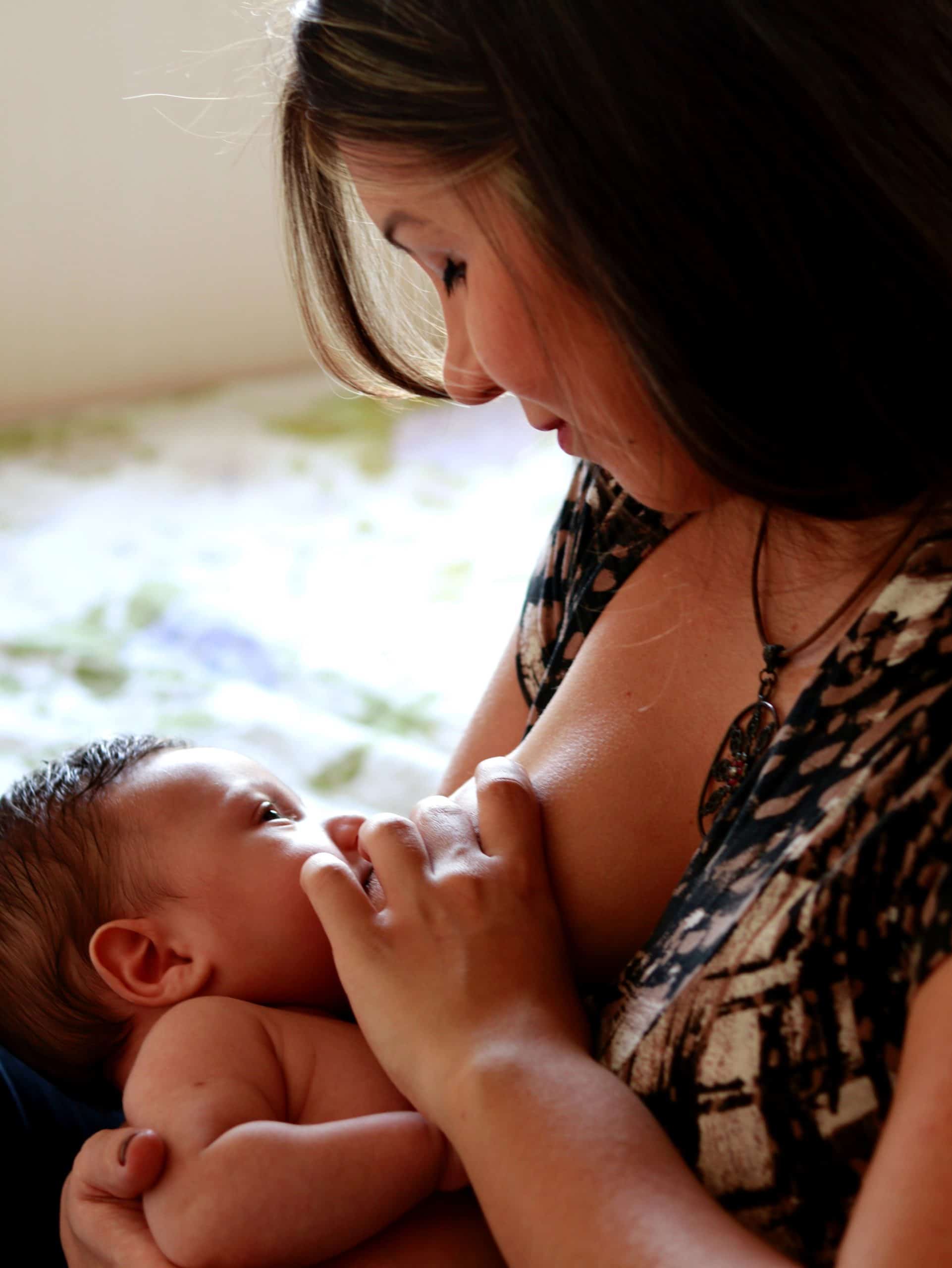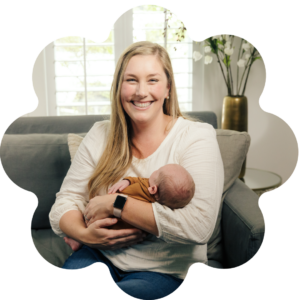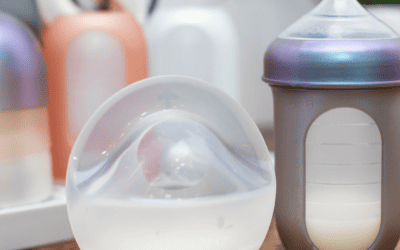Baby Settler Blog
“How do I get my baby to extend their nap?”
I get asked this question multiple times each week. My response is always, “Tell me a little more about your baby’s nap routine.”
Let me share a truth with you. Most babies (I would say all, but there’s always that one unicorn baby) won’t take predictable, lengthy, solid naps until their about four to five months old. So give yourself (and your baby) some GRACE if your baby is only taking cat naps and he’s less than five months old. The key to napping is to get NAPS! Controlling the duration of the nap is difficult in the first four to five months of your baby’s life.
I want to offer you some helpful tips and strategies to get better quality naps and to help you accept the nap routine you’re currently in.
If your baby is six weeks old or less.
Your baby’s going to take frequent naps. Don’t worry so much about the duration of the nap. Their wake windows are short, and their frequency of feeds are between two to four hours during the daytime. Your primary goal is to follow the feed, wake (includes feed time), sleep, feed cycle.
After the first six weeks.
Your baby is hopefully starting to extend her nighttime sleep a little. Most parent’s who’ve followed the method and recommendations explained in the Baby Settler Babies Made Simple online course have a baby that is sleeping between 5 to 8 hours at night by 6 weeks old.
As your baby extends her nighttime sleep, she will have to make up for the dropped nighttime feeding during the daytime. This is really important. Whenever your baby drops a nighttime feed there will be a transition period during the day. For example: your baby normally eats 7 times in 24 hours with 2 of those feeds happening after 7pm. One night she drops one of those feedings and sleeps a solid 8 hours. The next day you find that she isn’t napping as well. She starts waking up early from her naps. A very likely cause of this is because she needs to make up the missed nighttime feeding. Eventually, she will be able to condense her feedings to 6 per 24 hours…then 5 per 24 hours…but initially, she will need to make the 7th feeding up during her daytime feedings.
If you don’t allow her the space to reorganize her feedings, you could negatively affect her daytime naps as well as her nighttime feedings. Remember: anytime your baby drops a nighttime feeding, there will be a transition period. Expect shorter daytime naps and more frequent feedings for a period of time. This is EXTREMELY important for breastfeeding (and pumping) mothers. A dropped nighttime breastfeeding or pumping session needs to be made up during daytime hours so it doesn’t affect breastmilk supply.
Around three months
Your baby will go through a major growth spurt both physically and developmentally. This is also about the time when your baby will likely be sleeping a solid 9 to 11 uninterrupted hours at night. When you baby is less than four months old and sleeping for a solid 9+ uninterrupted (no feedings) hours at night, naps during the day will be irregular in duration. Hang in there! Although you DO want to protect and promote daytime naps (As daytime sleep promotes nighttime sleep), you don’t want to force you baby to long naps each day.
What do I mean by this?
You want to put your baby down for naps with the first signs of your baby being tired. The goal is to put your baby down for a nap awake but drowsy. Once your baby goes to sleep, allow your baby to sleep until he wakes up. When he wakes up “happy”, the nap is over. Sometimes baby’s will wake up “Early” from their nap. Meaning, they still need a longer nap but this is usually always accompanied with fussiness. A happy baby is almost always ready to get up from their nap! If your baby wakes up crying from his nap, I recommend using the “pause” to see if he will go back to sleep. Some baby’s cry and fuss as they are transitioning through sleep cycles. Each baby will be different. However, if your baby usually wakes up “happy” from a nap, but your baby is starting to wake up fussy….I’d pause and then consider what we just talked about. If your baby has started sleeping longer as night, it is VERY likely he is waking up early from his nap because he is hungry.
Wake windows.
Maybe you’re thinking, “My baby is happy in her crib so I’ll just let her stay in her crib for a little bit…” Ok, I hear you! I’ve personally done this on occasion. However, you don’t want to make this your “norm”. I’ll tell you why.
It’s REALLY important that you feed your baby at the very beginning of the wake window in order to get the most efficient, effective feeding. If your baby spends a good portion of her wake window in her crib…then she might not feed as well for this feeding (she might not take in as many ounces per feeding as she could!) and then she will wake up early from her next nap because she’s hungry. And the cycle continues.
Here’s another tip. Your baby’s wake windows will fluctuate based on the length of his nap. If your baby takes a solid 90 + minute nap, then the wake window will be longer. If your baby takes a 30-minute nap, then the wake window should be smaller.
By the time your baby is approaching five to six months old.
Your baby will likely transition to a predictable three nap per day routine. It will include a morning nap. The morning nap will usually happen within 90 minutes of the anchor feeding. An “after lunch” nap that usually happens around 12:00pm. And the evening “cat nap”. Around eight months, the evening cat nap goes away, and bedtime moves up about 30 minutes. Around 15 to 18 months your baby will transition to 1 nap per day (after lunch).
Three tips to establishing a solid nap routine you can count on:
- Follow the feed, wake, sleep, feed cycle. Important: Start feedings as soon as your baby wakes up from her nap.
- Let your wake windows fluctuate based on the duration of the nap
- Allow frequent daytime feedings (following the feed, wake, sleep, feed cycle) during the first three to four months in an effort to promote extended nighttime sleep.
Solid uninterrupted nighttime sleep is the end goal. And daytime naps promote nighttime sleep. If you need more help establishing a routine and navigating daytime naps, I’d be happy to support you with a consult!
You’ve got this!
Hillary
Note: The Babies Made Simple online course has downloads with wake windows, nap timeline suggestions, and routines “schedules” for 2 weeks through 18 months, we cover what does drowsy but awake means, efficient AND effective feeding, and how to adjust feeds & pumps so not to impact your supply.
Newborn Care 101: Essential Tips for First-Time Parents
When it comes to what to expect as a first-time mom, holding, diaper changes, swaddling, feeds, and sleep are some of the things to brush up on before your due date.
Mastering The Newborn Phase: Essential Tips For The First 30 Days
What exactly is a newborn? What age constitutes a newborn? What are the most important tips for newborn care?
Minimalist Mom Life: How Lovevery Simplifies Playtime For The New, Type-A Parent
Children learn through play. This learning begins so early, even with newborn playtime. Focusing on purposeful play with engaging toys for baby is beneficial for their development. But, how do you know what toys to get?











